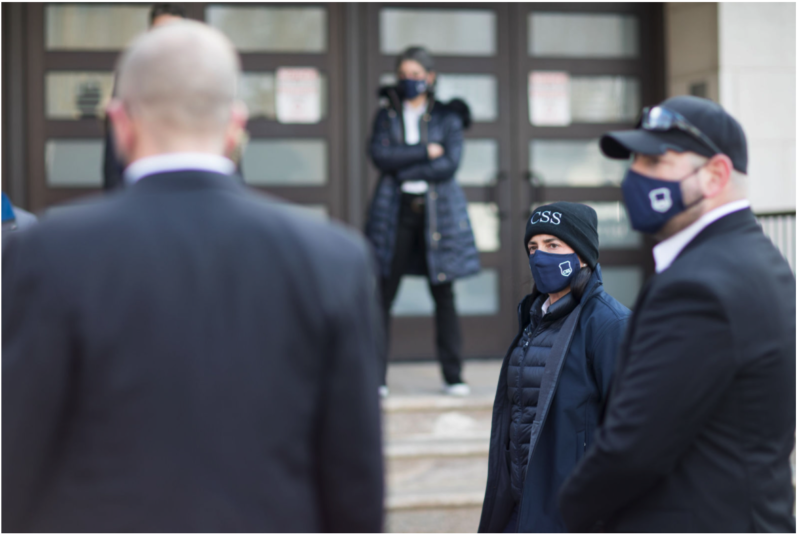Opinion
Education and awareness
The time is now to get serious about safety
In Short
Saturday’s hostage incident in Colleyville, Texas provided a chance to assess our Jewish institutions’ vulnerabilities.
Over the last 36 hours, our Jewish communities have had multiple opportunities to come together to support one another and our friends in Colleyville, Texas, utilizing the platforms we have all come to know well during the COVID-19 pandemic.
On a Zoom Sunday hosted by the Secure Community Network (SCN) and Anti-Defamation League (ADL), there was one significant takeaway: lots of new staff and change through the pandemic has left us vulnerable.


The Community Security Service (CSS) trains volunteers in basic security procedures to help protect their institutions and events across the country; courtesy.
Change is and has been constant during the pandemic.
The turnover of staff not only in the nonprofit space but across the business sector is well documented. It is called “The Great Resignation.”
But the change facing our houses of worship and Jewish institutions is not limited to personnel.
How many of us have changed the hours and days we are open, particularly as we have gone forward and back with being in-person, working from home or some combination of the two?
How many of our schools have changed the way they do things such as carpooling in an effort to limit the extra bodies in the building and keep our children safe?
And how have we altered the way we utilize spaces, perhaps placing meetings in unusual spots or moving our services to larger spaces to allow social distancing?
As we have navigated these changes with both personnel and some of the examples above, we have likely put things such as security training on the backburner.
It is understandable.
Our minds have been lost in updating COVID protocols, taking on additional responsibilities that we never knew were needed and training new staff members.
Saturday’s hostage incident in Colleyville provided a chance to assess our Jewish institutions’ vulnerabilities.
In comments after he was freed, Rabbi Charlie Cytron-Walker may have given us the tap on the shoulder we needed to remind us of what we may have put to the side.
“Over the years, my congregation and I have participated in multiple security courses from the Colleyville Police Department, the FBI, the Anti-Defamation League and Secure Community Network,” Rabbi Cytron-Walker said. “We are alive today because of that education. I encourage all Jewish congregations, religious groups, schools and others to participate in active-shooter and security courses.”
According to SCN, Rabbi Cytron-Walker and Beth Israel had done their most recent training just prior to the High Holy Days.
We should heed the words of Rabbi Cytron-Walker as security training, education and awareness played a huge role in saving the life of he and those he was held hostage with just as we would hope it would for our houses of worship and institutions if we faced a similar situation.
The time is now to reacquaint ourselves with the many resources made available by the alphabet soup of Jewish organizations and federal agencies. While not everything is free in life, many of these opportunities to enhance the know-how of your organization to be ready for a litany of situations are available for just that – free.
On Saturday night, I joined with you all in breathing a sigh of relief when those held hostage at Beth Israel were set free, but also know that we must all join together now to reaffirm our commitment to ensuring our Jewish institutions are safe places to learn, gather and worship going forward.
Jason Plotkin is the program director of Congregation Emanu El in Houston, Texas. He currently serves as the president of the Program & Engagement Professionals of Reform Judaism (PEP-RJ) and is a member of the North American board of the Union for Reform Judaism (URJ).











